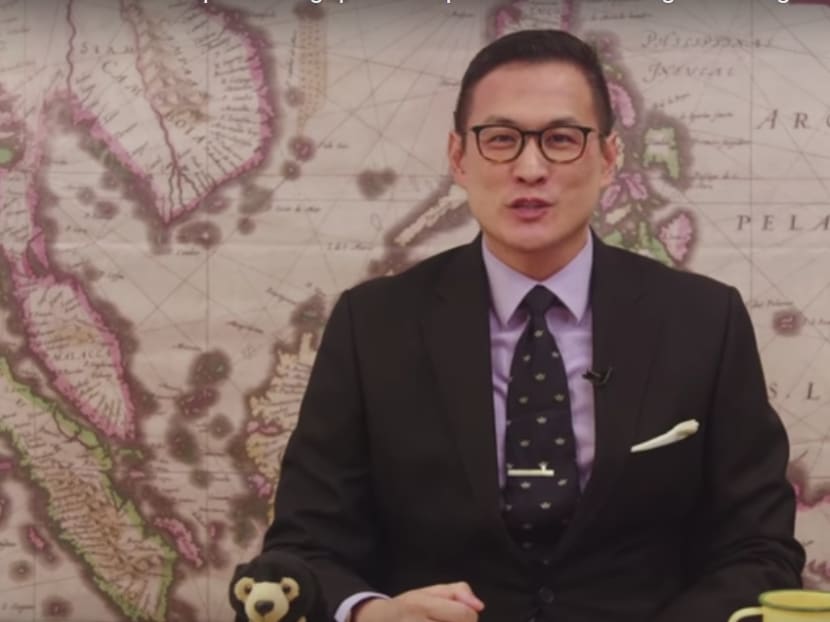Govt issues first Pofma correction directions over alleged falsehoods about the fake-news law itself
SINGAPORE — For the first time, the Government has issued correction directions under the Protection from Online Falsehoods and Manipulation Act (Pofma) about alleged falsehoods relating to Pofma itself. In another first, the directions involve material posted on YouTube.
SINGAPORE — For the first time, the Government has issued correction directions under the Protection from Online Falsehoods and Manipulation Act (Pofma) about alleged falsehoods relating to Pofma itself. In another first, the directions involve material posted on YouTube.
In a statement on Wednesday (May 13), the Ministry of Law (MinLaw) said that the directions were issued in relation to a video published on May 8 by Mr Thum Ping Tjin on the New Naratif YouTube channel containing “several false and misleading statements” about Pofma.
Pofma, which is intended to curb the rise of fake news, came into force in October last year. A number of previous correction directions have related to material posted on Facebook. YouTube is owned by Google, which in turn is owned by Alphabet.
Under the latest directions, Mr Thum and New Naratif are required to place a correction notice alongside the video in question, providing a link to the facts as asserted by the Government and the Government’s clarification on the matter. This means the YouTube video is still able to be viewed.
MinLaw highlighted four claims made in Mr Thum’s video, all of which it declared false:
Mr Thum asserted that the definition of “false” under Pofma means that one bit of a whole statement being untrue would render the entire statement to be deemed false. Any omission of a fact is sufficient for a statement to be considered misleading. Anyone could selectively quote a statement, making the quote misleading and liable to be considered false under Pofma.
He asserted that Pofma makes all criticisms of the Government illegal.
Mr Thum also stated that there is no recourse in law for the court to overturn a Pofma direction if it is an abuse of Pofma powers.
Finally, he stated that Pofma “means that the truth will be whatever the party says it is”.
MinLaw said that the first claim is false, since Pofma applies to assertions of fact that are false, and does not apply to opinions.
“If there is a dispute as to whether the statement is false, or whether it is a statement of fact, the dispute can be determined by the courts,” it said.
MinLaw said that a whole statement would not be automatically be considered false because “one bit” of it is false.
It also said that the second claim was false, as criticisms are opinions, which are not covered by Pofma.
“Criticisms which are based on true facts are also not covered by Pofma. Pofma only applies to falsehoods,” it said.
On the third claim, MinLaw said that the courts have judicial oversight of the exercise of powers under Pofma, and it is untrue to say there can be no recourse of law if there has been an abuse of Pofma powers.
It added that the final claim was also false for all of these reasons.
MinLaw also said that Mr Thum stated that Pofma had been used against “the interpretation of statistical data” by the Singapore Democratic Party (SDP), which it said was also false.
“The issue was not about interpretation of statistics. The SDP had made a direct, false statement,” it said, pointing to a High Court decision on SDP’s challenge of the correction direction.
The High Court had ruled that there was no basis for the directions against SDP to be set aside.
A legal question relating to Pofma appeals that remains unsettled is whether the burden of proof relating to Pofma appeals rests with the person lodging the appeal or the Government.
On Thursday, New Naratif posted a response to the direction on its website, saying that it has complied, and is displaying the correction notice on YouTube, Facebook, and the New Naratif website.
It added that while it disagreed with the correction direction, it was heartened to receive clarifications from the Pofma Office that the law only applies to false statements of fact and not to opinions, and that criticisms which are opinions and not statements of fact, as well as criticisms which are based on true facts, are not covered by Pofma.
As such, New Naratif said, it has clarified its opinions on Pofma.
Among other things, the website said it is of the opinion that the extremely broad definitions of falsehoods and public interest in Pofma allows, in theory, any criticism of the Singapore Government to be considered false, and that in its opinion, Pofma correction cirections like the one it had received are an attempt to intimidate independent media and an abuse of the law, designed to strike fear into the hearts of the Government’s critics and citizenry.
It also called for Pofma to be revised in consultation with the general public and invited Law and Home Affairs Minister K Shanmugam to have a debate over the impact of Pofma on freedom of expression in Singapore.










